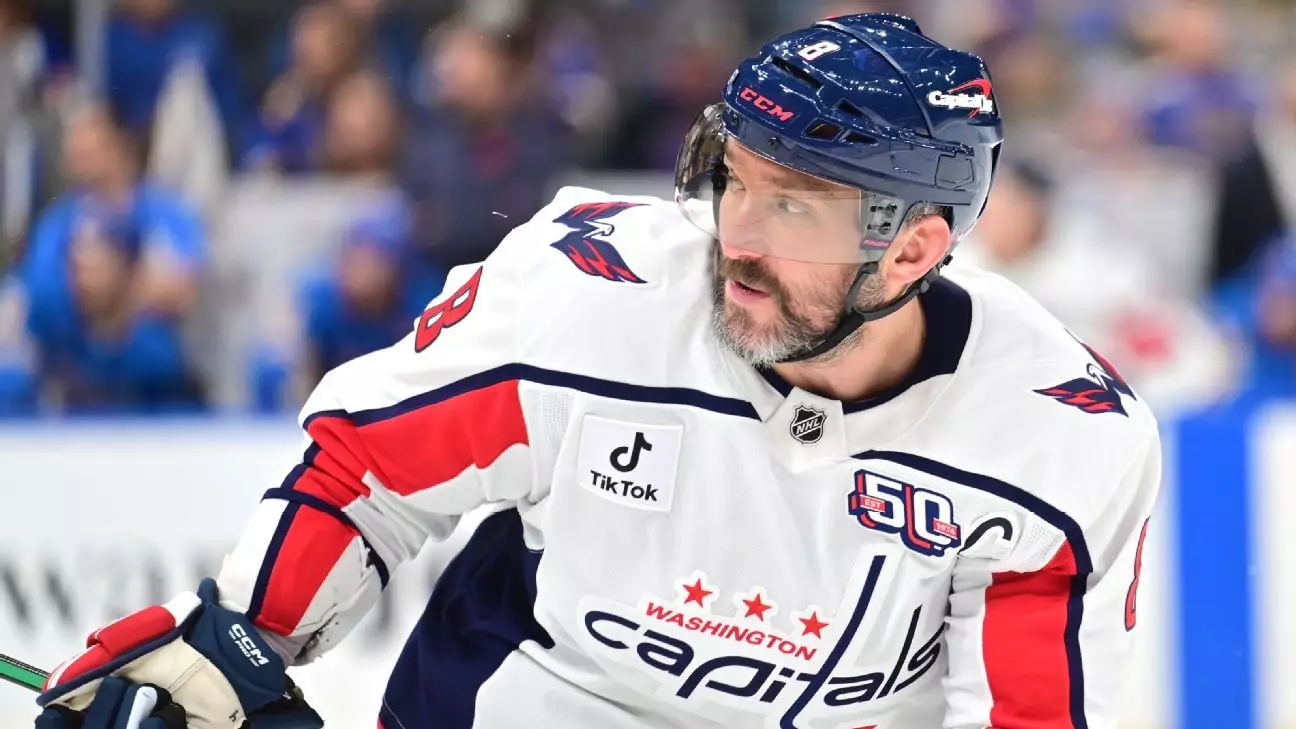The sports world is no stranger to injuries, but when a high-profile athlete like Alex Ovechkin goes down, it sends ripples through the entire league. The Washington Capitals have found themselves in a challenging situation following Ovechkin’s placement on injured reserve due to a lower leg injury sustained during a game against Utah. With the iconic captain sidelined for the foreseeable future, the team must now adjust to life without its leading scorer and emotional fulcrum.
Ovechkin, often regarded as one of the greatest goal scorers in NHL history, has always been a pivotal player for the Capitals. Scoring 15 goals in just 18 games is no small feat, and it underscores the importance of his presence both on and off the ice. Ovechkin’s pursuit of Wayne Gretzky’s career goals record has been a talking point all season long, creating an exciting narrative for fans and analysts alike. The injury halts this chase, leaving many disappointed, including his teammates who have watched him commit wholeheartedly to this goal. Tom Wilson encapsulated this sentiment: the disappointment doesn’t just affect Ovechkin but reverberates through the entire squad, emphasizing the emotional landscape that athletes navigate even when facing physical challenges.
John Carlson expressed the common thread of camaraderie in the dressing room, as he reminisced about how Ovechkin’s customary presence before games will be sorely missed. Carlson characterized Ovechkin’s reaction to the injury as distinctly human, highlighting the emotional toll of being sidelined during such a significant moment in a storied career. The locker room dynamic shifts when a leader is missing; it’s a void that stats don’t quantify, but teammates feel it palpably. Each player steps up in different ways, and the onus to perform now falls more heavily on the remaining leaders within the team.
The Capitals must now confront the collective responsibility of continuing to win without their captain. Coach Spencer Carbery is faced with the daunting task of reconfiguring strategies and lineups, especially with other players, like Sonny Milano, also out due to injuries. The addition of Ivan Miroshnichenko from the AHL is an attempt to inject new energy into the roster, but the pressure is significant for young players when they are thrust into the spotlight under such circumstances.
Jakub Vrana’s comments highlight a common mantra in any team facing adversity: while it is difficult to cope with Ovechkin’s absence, they must also acknowledge the reality of their situation. Every player’s contribution will be vital, and they will need to rise collectively to fill the gaping hole left by their captain. This involves not only increased offensive output but also maintaining the character and resilience that has defined the Capitals, especially in playoff scenarios.
Reactions to Ovechkin’s injury have not been limited to just his team; the entire NHL community feels the effect. Coaches like Colorado’s Jared Bednar have conveyed their sadness at the prospect of losing Ovechkin, especially given that he is on the cusp of achieving greatness. These sentiments reflect a wider appreciation across the league for what Ovechkin represents—not just as a player for the Capitals but as an athlete chasing history. The league thrives on its stars, and to see one on the sidelines is a loss to everyone involved in the sport.
As the Washington Capitals regroup, they are reminded that injuries are an unfortunate reality of sports. The challenges they face without Ovechkin may test their character, but they can also serve as a catalyst for growth within the team. While the pursuit of Gretzky’s record is put on hold, the Capitals have an opportunity to rally together, rediscover their identity, and demonstrate their depth as a team. Ovechkin’s absence might last longer than anticipated, but the spirit of resilience is what makes a team truly formidable. The Capitals must embrace this challenge, one game at a time, ensuring that Ovechkin’ll have a team ready and waiting upon his return.

